In 1925 a woman was born in the city of Puerto La Cruz in Venezuela, Anzoategui State, among a total of six siblings (there were three females and three males) she was the third. At that time the country was still very backward learning to do business related to oil and the big transnationals of the time. The custom in the East of the country at that time, dictated that women were born to do housework and have children.
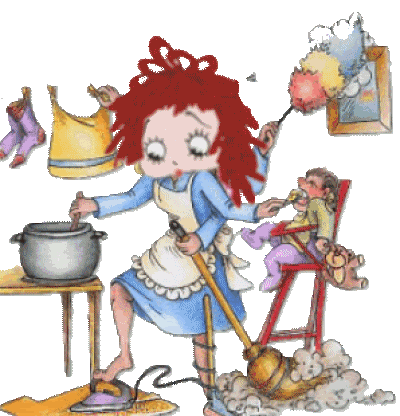
At an early age, these women were already engaged by their fathers to men who were up to 40 years older than them, many did not finish elementary school and barely knew how to read and write. The mothers of these young women taught them household chores and in some cases the raising of younger children.
In 1929, Ines went on vacation with her parents to the city of Cumana in eastern Venezuela and witnessed how the houses of the town collapsed and people died, how the evil retreated almost two hundred meters and then returned in the form of a Tsunami, this event marked her for life, being one of the most horrible things that a five year old girl could have lived.

Source
Ines was taken out of school when she was 9 years old, she was taught to clean the house, to iron, to sew, to cook, to take care of her younger siblings, but above all to be thrifty.
She grew up and among her great hobbies was playing the lottery and reading Spanish cards as a method of divining people's futures. With this, while still taking care of her siblings and still doing household chores, she earned some money that she always kept in a chest or under the mattress of her bed.
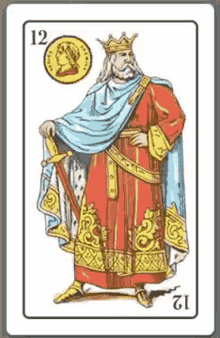
In 1939, at the age of fourteen, she was engaged to a man thirty years older than her, who was a widower with five small children. At first this did not please the girl, but after much pleading on the part of her parents she agreed to marry and raise five children with this man who disappeared for long periods of time.

Source
To this considerable number of children were added two girls of her own, two years apart, and the children of her husband, who was always absent, were between five and nine years old. They respected their stepmother, who had instilled in them values such as honesty, responsibility, compassion, love, forgiveness and gratitude. They all went to school, including the little girls.
The boys never had a male figure to look up to and learn from, as their father was an irresponsible man, a drinker and a womanizer, but he always provided the money for their upkeep.
This young woman always counted on the help of her mother, with whom she shared her cooking secrets, never stopped playing lottery or performing divination activities with Spanish cards.
One day, she had to make a big decision since her husband was already starting to commit her daughters to older men, and in order not to repeat her story, she decided to run away from home with her daughters, but leaving the rest of the children with their uncles on their father's side.
This was a scandal for the time (1943), which did not bother Ines. When she was almost nineteen years old, she moved to the city of Cumana, where she had previously lived through the traumatic experience of the earthquake. There, together with her mother, she raised these two girls.
Ines quickly got a job as a cook on oil tankers belonging to large U.S. transnationals, where she surprised the crew with a great seasoning, and also learned to make an inimitable meatball, a recipe that she always refused to divulge. Sometimes she would spend up to two months inside the ships traveling to the United States, but never under these ships.
It was a well-paying job that helped her survive in conjunction with her love of the lottery (she usually guessed the winning number) and reading the future through Spanish cards.
Her repentant husband was always looking for her, but Ines was always looking for a way to get him out of her way, without much success, and she became pregnant again in 1947 and 1949. This man never managed to mistreat Ines or her daughters, but he was always drunk and disappeared for long periods of time.
The older daughters, aged eleven and nine respectively, relied on their maternal grandmother to care for the newborn girl and her two-year-old sister.
Ines' husband died in 1950, and by this time the 25 year old Ines decided to move with her daughters and sister to the capital city of Caracas. There she arrived in a small rented house in an urbanization called El Valle, and immediately began to look for a job as a seamstress, which she alternated with ironing clothes and cooking for others. She was very concerned that her daughters would continue their high school and elementary school studies. Her sister fell in love and with her boyfriend moved to the city of Los Teques in the outskirts of Caracas.
In 1953 this fatherless family moved to the Urbanizacion Chacao also in the city of Caracas and Ines quickly made friends among the neighbors of Spanish, Portuguese and Arab nationality. Her work as a seamstress is appreciated and she also learns to breed canaries for sale.

Source
The childhood of her daughters and the life of Ines goes by peacefully, a dictatorial government falls, which nevertheless manages to modernize Venezuela as far as infrastructure is concerned.
In 1967, with two daughters already working and two others in high school, a terrible earthquake occurred in the city of Caracas that in only 35 seconds caused the collapse of buildings in the Metropolitan Area of Caracas and the Central Coast, which resulted in a large number of people losing their lives. In Caracas the most affected areas were the Urbanizaciones Altamira and Los Palos Grandes, both next to the Urbanización Chacao.

Source
Ines spent three sleepless nights in the street with her daughters and her mind was filled with old memories of that earthquake in the city of Cumana in 1929.
Ines' second daughter was pregnant and in the month of December of that year, she had her baby, which was received with joy by Ines and her other daughters. The father, although he recognized his son, was not present in his child's upbringing because he was irresponsible, liked other women and drinking, and was like a more modern version of Ines' deceased husband.
At this point in the story I confess that this child is me, and that everything I have told so far was transmitted to me through my grandmother Ines, my mother and the eldest of my aunts.
My mother, helped by my aunts worked very hard to give me an education, so my grandmother Ines always took care of me, she told me many stories with moral included, she talked for hours about her life, she taught me the value of things and showed me what goodness is in people, she helped me to learn not to judge people, and she gave me many tips that have been very useful to this day.
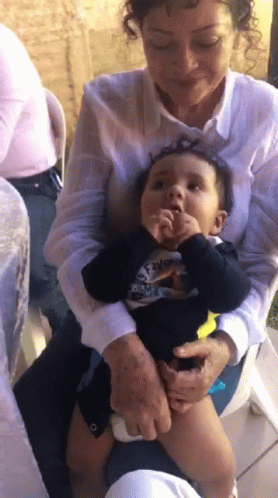
I remember having moments of great economic abundance, and the thunderous chirping of those canaries that my grandmother raised on the balcony of the apartment. She never gave up her love for the lottery, and sometimes she would read the Spanish letters (something I never learned).
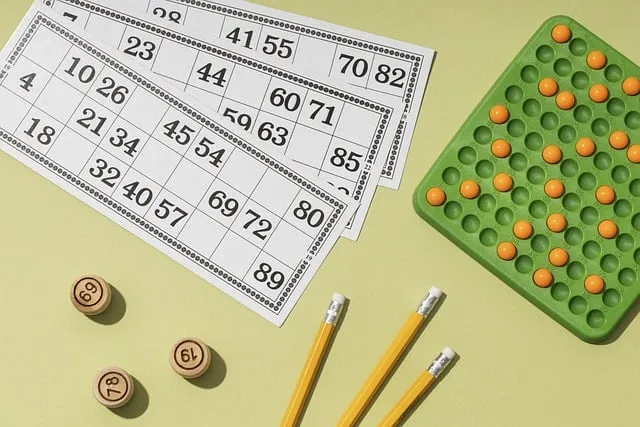
Source
He scolded me when it was necessary, rewarded me without my asking or expecting it, indulged me in certain whims and was always our center of attention during his life.
She prepared me to be self-sufficient, and to be able to meet my needs in terms of household chores such as cooking, washing, ironing and cleaning my home.
My grandmother looked younger than other grandmothers, and to this day I realize that this was because she had her daughters at a very young age. Her third daughter followed her example and had four daughters, but with a man who cared for them and represented them.
Having to share my grandmother's affection with my cousins made me feel very jealous, but as time went by and I saw how my grandmother repeated the same stories she told me.
During the 80's and the first half of the 90's my grandmother was still active, she stopped raising canaries and worked as a seamstress, mostly to be active and not only taking care of grandchildren. At that time she traveled with my aunt, her husband and my cousins on vacations to all the Caribbean Islands.
In the mid 90's at the age of 76 Ines moved to Margarita Island in Venezuela and lived with my oldest aunt and my mother, returning to Caracas in 2001 because I was getting married. The following year I had a baby girl, and my grandmother reminded me of old tips for raising her and repeated them to my wife.
From 2003 onwards, my grandmother's situation was very hard, she began to suffer from Alzheimer's symptoms, although she had some moments of clear lucidity.
My grandmother died at the age of 76 in 2005, it was a very sad moment, however, I still feel her essence and I value very much the advice she gave me and I am incessantly transmitting it to my daughter.
Ines was a woman who witnessed important events in the history of the country, both natural and political, within what she could, she did not let herself be dominated by machismo and old customs and within her humility she managed to raise her daughters, always instilling values in them. In addition, she served as an example for all her grandchildren, and her stories have not died with her, they continue to be transmitted to other generations.
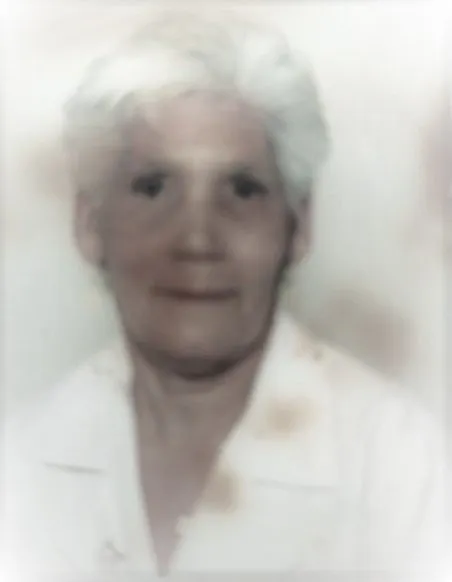
How much I miss you grandmother.
